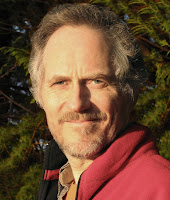
(Cross posted from www.SteveHargadon.com)
"I think we're in--in a lot of ways--a period of the most profound reinvention of ...education and how people need to learn since the invention of literacy."
Tim O'Reilly is the founder of O'Reilly Media, and one of the originators of the phrase "Web 2.0." His essay on Web 2.0 certainly is considered the seminal description.
Tim and I talked about Web 2.0, education, and what the future holds for networked computing. I haven't put this in my "School 2.0" series because, as you'll hear, Tim's take on education isn't nearly as technology-focused as one might expect.
Topics that Tim covers in the interview:
- Being self-taught
- Having a mental model of how the world works to let you figure out what's important
- A new "digital divide" today between those who know how to think about search and those who don't; those who know where the current hot information is being shared, and those who don't.
- Tim's skepticism of formal education, coming from the computer industry and seeing creativity from those with very different backgrounds, with their formal education almost alway not in the area where they have made an impact (himself included).
- Self-learning.
- How most periods of a creative renaissance start with inspired amateurs.
- The importance of "doing things," "tinkering,", and "exploratory learning."
- That "engagement" is not new to Web 2.0, but the opportunity is being democratized by the technology.
- That it is important not to generalize too much about where the technology is headed from the initial formative period.
- How he believes that spending on educational technology is a bad idea (smile!), and that smaller class sizes would make the most difference in education, period, by giving more interaction with passionate adults who have time and ability to focus on kids. (See if you feel comfortable with how I respond to this point.)
- How we need to get rid of unionized seniority to get fresh blood, so the best can rise to the top instead of the most senior. (Again, I'm interested in your responses to this and your take on how I responded.)
- Open Source software, and how Web 2.0 is actually antithetical to open source software.
- Clayton Christiansen's "law of conservation of attractive profits," where value in Web applications moving toward the harnessing and collecting of data and intelligence.
- How it's not free software that we need but free data.
- The inevitability of large companies absorbing the web 2.0 technologies by leveraging their data collection capabilities.
- The biggest change he sees on horizon: collective intelligence based on our being "sensory enabled." "Live Software" that learns from that data.
- What Web 2.0 technologies that he likes
- His final words for educators: "have fun." Share your own enthusiasm, excitement, and passion.
 Listen to the the Interview in MP3 format
Listen to the the Interview in MP3 format
 Listen to the Interview in Vorbis OGG format
Listen to the Interview in Vorbis OGG format
-
Comment by Carolyn Foote on May 2, 2007 at 6:58pm
-
Some of his comments bring to mind Daniel Pink's book, Whole New Mind, especially those about exploratory learning and tinkering.
I love the idea that a creative renaissance begins with passionate amateurs!
-
Comment by Steve Hargadon on May 2, 2007 at 7:10pm
-
Carolyn:
If that resonated with you, then you for sure want to listen to the interview I did with John Seely Brown.
http://edtechlive.wikispaces.com/recordings+list
Cheers,
Steve
-
Comment by Brandon Carson on June 8, 2007 at 1:22pm
-
Great interview. The man is truly insightful and visionary.
Comment
© 2025 Created by Steve Hargadon.
Powered by
![]()



You need to be a member of Classroom 2.0 to add comments!
Join Classroom 2.0